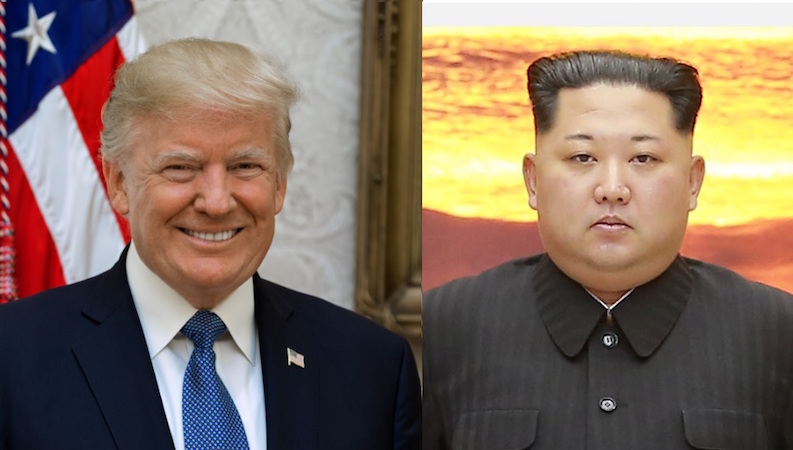Since 9/11, the realm of international politics has seemingly revolved around the combat and suppression of international terrorism. It is difficult to understand why the threat of global terrorism has become such a struggle, as states are exposed to much greater security threats. However, the alarmist nature of the issue has garnered massive international attention, and its global span has made multilateral relations the norm for dealing with its complexity. Currently, multilateral organizations lack the legal right to prosecute and detain international criminals; therefore, states are left to develop their own means of prosecution for suspects, which further complicates the multilateral unanimity regarding how legal issues should be managed.
The growing need for a solution to what has become an international problem began with the inclusion of new policy by prominent multilateral organizations to immediately suppress the global threat of international terrorism. Multilateral institutions now cover a wide range of security related issues, all of which could undoubtedly contribute to some degree to the suppression of terrorism.
The difficulty with this statement, however, is deciding to what degree multilateral institutions have been successful. In some aspects, multilateral institutions have developed groundbreaking policy and internationally accepted agreements, but on other levels, multilateral cooperation has been in limbo, and crucial issues have gone untouched for years. It is difficult to determine if a national, regional, or global approach would have been the most beneficial counterterrorism strategy to date, however, it is clear that progress on all fronts is required to ensure the safety and long term prosperity of the globe.
“The International Criminal Court (ICC) would undoubtedly be the most logical and seamless route for dealing with the jurisdictional shortcomings of domestic and international law in relation to the conviction of international terrorists.”

The realist approach to international relations by the powerful western nations convolutes this issue, as Western states have continued to ignore multilateral suggestions, and have acted out of self interest. An example of this can clearly be seen in the Bush Administration’s decision to invade Iraq despite the UN’s disapproval. The realist mentality of the most powerful nations involved in the struggle against international terrorism hinders the ability of multinationals to develop a legally binding framework for combating international terrorism, as national self interests take priority over international cooperation. Although the benefits of a multilateral framework for counterterrorism measures would be abundant, the current realist mentality of states, the difficulty in finding unanimous legal definitions, and the lack of legally binding structure makes multilateral cooperation a utopian prospect for dealing with international terrorism.
Some would argue that there is no international non-partisan body capable of dealing with an issue as large and complex as international terrorism. Candidates like the UN would be considered by most as the most capable means of combating international terrorism, however, the task would be a tall order for the UN, as the decision making process at the global multilateral level is not seamless, and this difficulty would further complicate an already complex matter.
In fact, the International Criminal Court (ICC) would undoubtedly be the most logical and seamless route for dealing with the jurisdictional shortcomings of domestic and international law in relation to the conviction of international terrorists. The mode most viable is the inclusion of international terrorism as a punishable offense under Article 7 of the Rome Statute which condemns crimes against humanity through the authority of the ICC. Article 7 of the Rome Statute identifies a series of acts that constitute a crime against humanity, under the stipulation that they are committed as part of a widespread or systemic attack directed against civilian population. The acts relevant to terrorism include murder, persecution against any identifiable group and other inhumane acts of similar character intentionally causing great suffering or serious injury to body or to mental or physical health.

Furthermore, an act of terrorism, regardless of whether large or small still operates within the confines of a crime against humanity, and therefore, should be punishable as an offense within the jurisdiction of the ICC. Irrespective of the size and scope of terrorist violence, the modern wave of terrorism is undoubtedly underpinned by a religious agenda, making it widespread and systemic in nature, and warranting the employment of Article 7 of the Rome Statute.
In addition to Article 7 of the ICC’s Rome Statute, the act of terrorism also conforms to a series of alternative articles within the Rome Statute, thus proving its relevance as adoptable by the ICC. Article 17, Article 12, and Article 1 address several of the major issues challenging international and domestic law in prosecuting international terrorism suspects. Article 17, for example, allows the ICC to intervene in circumstances where a nation is refusing to prosecute a terrorism suspect. Article 12 of the Rome Statute also includes the jurisdiction of the ICC in matters regarding criminal jurisdiction of suspected terrorists whose nationality belongs to an ICC signatory state, meaning the ICC’s jurisdiction cannot be questioned by signatory states, and offenders may be tried regardless of the state the act was committed in, or the parties which were affected by the attack.
Finally, Article 1 of the Rome Statute ensures that signatory states to the ICC will not have their state sovereignty infringed upon by the jurisdiction of the ICC, which guarantees the sovereignty of individual state’s legal systems. The preamble in Article 1 clearly states, “[The] ICC in relationship with the United Nations system, with jurisdiction over the most serious crimes of concern to the international community…Emphasizing that the ICC established under this Statute shall be complementary to national criminal jurisdictions…” This is an essential feature of the ICC, as many states and their sovereignty will be sacrificed in conceding too much control to a multilateral body; however, this subsection of Article 1 ensures that the intrusion of state sovereignty is kept to a minimum and only in incidents where domestic and international law alone cannot be used effectively.
If the individual states that make up the current multilateral organizations were to cede some of their legal and political liberties to the global or regional collective, issues such as international terrorism would be dealt with in a much more efficient manner. However, the current state of multilateral affairs is indicative of a realist state, where individual nation’s act out of their individual interests on issues that could be better handled collectively. It is clear that in order to properly deal with a threat as large as international terrorism, individual states must cede some legal and political power to multilateral organizations so that counterterrorism strategy can be developed and enforced collectively. Unfortunately, minute legal legitimacy, the inherent realist nature of multilateral member states, and the ongoing dilemma of defining terrorism will continue to hinder the security capabilities of regional, and global multilateral organizations, despite the availability of multilateral bodies like the ICC that are fully capable of addressing the jurisdictional shortcomings of domestic and international legal systems in dealing with the trails of international terrorists.




